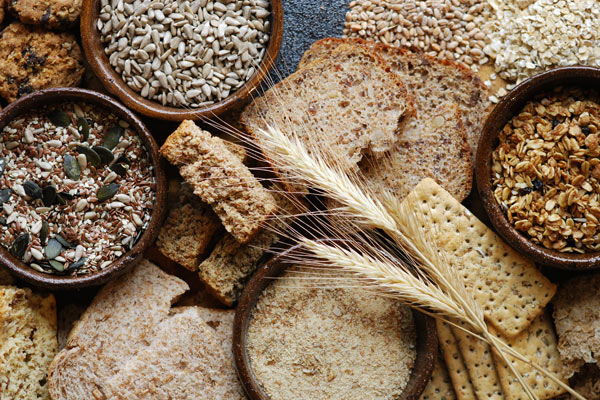Carbohydrates have earned somewhat of a bad reputation over the years. Like other macronutrients before them, carbs have fallen victim to the latest diet trends and fads, many of which recommend significantly reducing carbohydrate intake across the board. In fact, the topic often inspires heated debate between health and fitness experts, not to mention the feelings of love, hate and guilt inspired in the average person. Carbs have become the guilty pleasure of macronutrients.
For those with weight loss as a goal, low-carb diets have seemed to provide the answer. Reduced carbohydrate diets are commonly recommended based on the initial weight loss; however, studies have found this initial weight loss is often not sustained and, in many cases, leads to weight gain down the road. Plus, without carbs to utilize for energy, the body begins to burn protein. Over the long-term, a balanced diet including carbohydrates will yield the best results.
It’s time to set the record straight about this essential macronutrient and find out the real impact of carbs on our bodies.
The Role of Carbs
Carbohydrates are a key source of energy. As the body ingests these macronutrients from food, it sets in motion a complex process of carbohydrate breakdown, insulin release and sugar absorption. This process creates, ideally, a steady stream of energy for the body, whether the individual is typing away at a desk or completing a rigorous training session. Clearly, carbohydrates play a vital role in our diets.
The Right Carb for the Right Job
We’ve all heard the terms simple and complex carbs and, more recently, glycemic index. These refer to the structure of the carbohydrate and how quickly it’s broken down into glucose in the bloodstream. In general, the diet should focus on complex carbohydrates, such as whole-grain breads, rices and cereals, along with the right simple carbohydrates such as fruits, vegetables and low-fat dairy (simple carbs like refined sugar are best avoided). These types of carbohydrates provide not only energy, but also vitamins and minerals and, in many cases, fiber. When quickly trying to replenish energy stores after an intense workout, the right carb is often a simple carb paired with protein. Chocolate milk, yogurt with fruit and similar post-workout snacks can be good options. Like anything else in a good nutrition program, it comes down to taking a total-diet approach and choosing the right carb to fuel your day or refuel after a training session.
The Dark Side of Carbs
Yes, carbs are a primary source of energy and a must for a quality nutrition program. And yes, carbs can have a dark side just like any other macronutrient consumed in excess. This is where carbs start earning a bad reputation and it’s all in how we eat them. Carbohydrates are a source of energy, broken down by the body and then used or stored as glycogen, which is a quick source of energy to power your muscles through their next lifting session or high-intensity interval training workout. Unfortunately, the body’s ability to store glycogen is limited. Once the glycogen reserves are full, where does the excess glucose go? That extra energy broken down from excess carbohydrates is stored as fat instead of glycogen. Not all carbs lead to fat, just the excess ones.
It’s time to recognize the real impact of carbs—the energy they provide for day-to-day needs or extreme workout—as well as how we utilize them, for better or worse. Making a place for quality carbohydrates like whole grains, fruits, vegetables and legumes in a good nutrition program can ensure long-term success for you and your clients.
Source


No comments:
Post a Comment